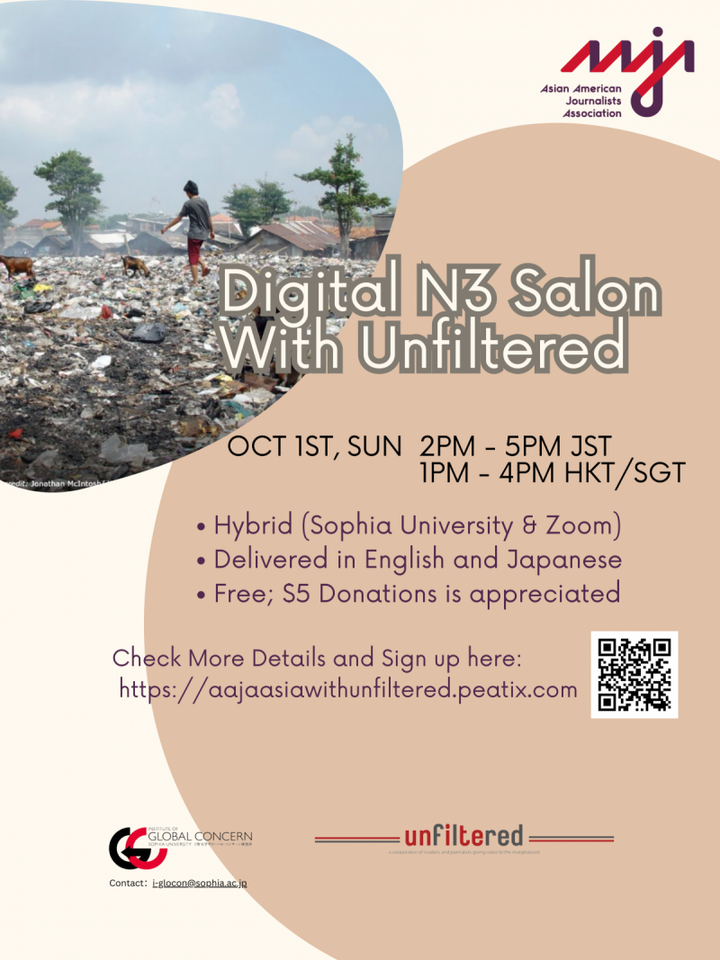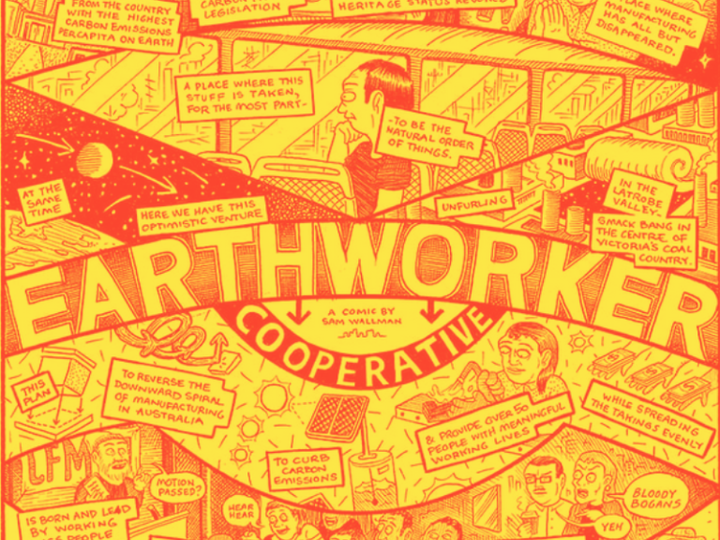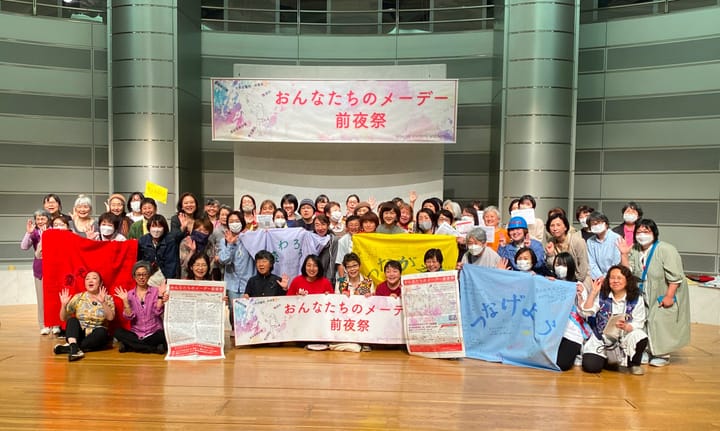Refugees in Japan help give rural communities competitive edge

When C.I. Desert landed at the Narita International Airport in 2018, he stepped into a new life. Young, educated, and multilingual, he fled home, family and a teaching career in Cameroon, which was rife with civil unrest. The reason for choosing Japan, he says, was simple: “In 2018, if you typed ‘10 safest countries in the world,’ you saw Japan.”
Safe as it may be, he found living in his adopted homeland more challenging than expected. There was little official support, and his skills were not recognized. Without a working knowledge of the Japanese language, things, he realized, would be tough. Yet, with no other choice available, he reached out to the Cameroonian community in Japan for help finding work, getting an apartment, and starting his visa paperwork.
“I had no plan,” says C.I Desert, who requested his real name not be used to protect his identity. “I just knew I had to survive. It was a terrible switch, moving from Cameroon, where I was comfortable and had a stable job, and then coming to Japan where I didn’t even know how to say ‘good morning.’ It was difficult. I’ve always been independent and that first month in Japan was the first time in my life that I wasn’t.”
According to Seira Yun, founder and CEO of Discover Deep Japan (DDJ), a digital marketing agency that revitalizes rural communities by leveraging the talents of refugees and migrants, Desert’s story is not unusual. “The biggest obstacle a refugee experiences when they come to Japan is the difference between expectation and reality,” Yun says. “There is a huge gap. Japan is known as an advanced country, but when people arrive here they realize it’s going to be tough.”
Japan rejects all but a handful of refugees and makes applicants wait from three to 10 years to get official refugee status, according to the Japan Association of Refugees (JAR) website. In 2019, of the 10,375 people who applied for refugee status only 44 were accepted. Even as the Japanese government remains a generous donor to international refugee programs such as United Nations High Commissioner for Refugees (UNHCR), purse strings remain tight at home for those seeking asylum.
Other countries, such as Germany, take significantly larger numbers of people. They also offer financial support, healthcare and housing, language lessons, and help finding jobs. Japan, in turn, provides few social benefits. The main state support, seikatsuhogo, is a daily stipend of roughly ¥1,600 a day. It remains unclear how much this will change under Prime Minister Yoshihide Suga, who assumed office in September following the resignation of Shinzo Abe.
Nongovernmental organizations, such as the Japan Association for Refugees (JAR), pick up the slack, stepping in to help refugees get settled, secure benefits, apply for visas, and find extra food and clothes.
Even so, refugees and migrants are still left with plenty of uncertainty and stress, Yun says. “Sometimes when refugees go to JAR for food, they skip a few meals to cover the transportation costs,” he explains. “Those people were respected professionals, such as doctors, lawyers, engineers, and marketers, and then they have to rely on people’s mercy for food. It’s really degrading.”
Some who have been subjected to “traumatic experiences” in their home countries undergo further distressed upon arrival in Japan, says Yun. “Sometimes they are interrogated for hours at the airport here, (and worry) that if they get sent back they might be tortured or killed. In their home country, on the way to Japan, and here as well, they are exploited or experience discrimination.”
Desert’s first job in Japan was at a factory. After a few months, he moved to a shipping company working the graveyard shift, loading and unloading trucks. The pay was better and the commute shorter.
“Japan is industrialized, so I was hoping I’d be able to use my skills, not just to work, but also to grow, develop and have an impact,” Desert says. “I believed Japan was a place where I could do that.”
Yun agrees with Desert that refugees and migrants could help offset the steady population decline plaguing the country since the 1980s and the slow depopulation of rural regions as people shift to urban areas for jobs and education.
“In the countryside, there are very few people with native level foreign language plus marketing skills, but the countryside wants to sell their products abroad or attract more foreign tourists,” Yun says. “So there are needs for these skills there and a business opportunity.”
Yun founded Discover Deep Japan (DDJ) in 2019 as a social startup that seeks to link the untapped potential of both while turning a profit. The company works with 18 municipalities and local organizations around Japan. DDJ employees—many of them refugees and migrants— move to rural communities where their language and technological and professional skills support inbound tourism and increase local product awareness.
DDJ employs a total of 14 migrants and refugees, providing them with company housing, professional development courses, healthcare, language training, and, ultimately, a sense of worth and satisfaction.
“I want to really make these people understand that they have value to add to the community, to the company, and to the client,” says Yun.
The benefits are not just material, he points out. The relationships and exchanges made help people understand each other and build bonds that make a difference to the communities, the country, and ultimately the world, he says.
“I think if you live in the countryside and grew up with conservative values and you don’t have anyone, for example, marrying a Korean person, a black person, or any diversity, it’s quite normal to develop the idea that foreigners are bad and we need to remain pure Japanese,” Yun says. “That’s something we could change with DDJ. If some of our members stay in these places, they will maybe have families and attract more people with different backgrounds. That could slowly change the predominant discourse.”
One night, as he started his shift, Desert received a phone call asking if he would be interested in a position with an organization called Discover Deep Japan? Desert jumped at the chance.
Two years on, he is settled in a small rural town in Niigata Prefecture, where he writes articles and manages the social media accounts that help attract tourists and international interest. Desert hopes his work will bring economic stability and secure a better future for everyone. The experience isn’t always easy, he says, but it’s worth it.
“Discover Deep Japan offers me liberty,” Desert says. “I’m able to use my skills and think for myself. I’m not judged by the color of my skin or my nationality. In Japan, if you are black, people have a bad image of you because of what they see in the media. Here, [in my new hometown], people actually see the value of the person and their experiences. If I contribute to their efforts and it works, then I’m helping. I feel like I’m building something.”
For more information about Discover Deep Japan visit https://discover-deep.com/en/home/


